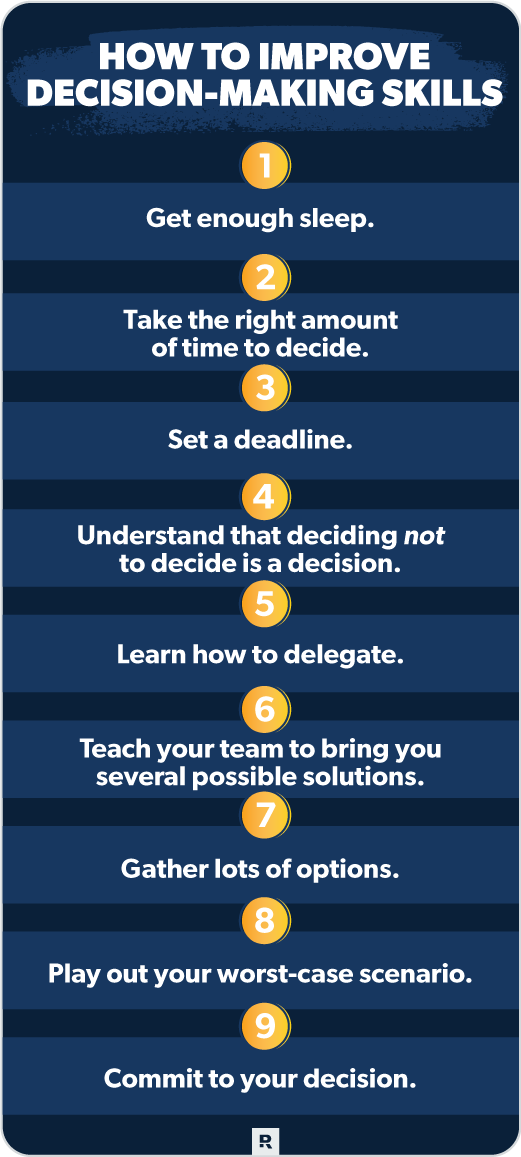In a universe brimming with decisions, the capacity to make wise decisions is ever important than ever. From the common daily decisions we encounter—what to eat for breakfast—to monumental life-altering decisions like selecting a career path, the process of making decisions molds our existence in significant ways. However, in spite of its importance, many individuals struggle with making choices, often yielding to indecision or lamenting their decisions later.
Understanding the science of making decisions can enable you to perfect the art of smart making decisions. In this article, we will explore 10 established methods to enhance your decision-making skills, delve into the mental aspects that affects great decisions, and offer useful tools to increase clarity and assurance in your choices. Whether a manager faced with challenging decisions or an person struggling with doubt, these insights will enable you to make improved decisions, even under pressure. Join us as we discover the tactics that can change your decision-making process and assist you navigate life with increased assurance and clarity of thought.
Methods for Better Decision Making
Boosting decision-making begins with honing the art of smart decision-making. One powerful technique is to use a decision making model, such as the pros and cons list. This simple tool helps visualize the potential benefits and disadvantages of each choice, making it more manageable to evaluate your options. Additionally, using the SMART framework—Particular, Measurable, Attainable, Pertinent, and Time-bound—can provide clarity and direction when considering options, making sure that decisions conform with your goals.
Another vital technique involves reviewing past decisions to learn from them. Looking back on previous choices can illuminate patterns in decision-making, permitting you to identify what worked and what did not. This practice fosters a learning mindset and encourages you to view mistakes as opportunities for learning rather than setbacks. By developing this introspective habit, you can enhance your skill to make intelligent decisions in the long run.
Ultimately, tackling decision fatigue is crucial for maintaining cognitive clarity. Reducing your decisions, whether by planning your day to make important decisions when your focus is highest or limiting the number of daily decisions you make, can reduce overwhelming feelings. Consistent interludes and concentration practices can also help free your mind and improve concentration, allowing for faster and more successful decision-making under stress.
Comprehending Choice-Making Cognitive Theory
Decision-making is profoundly rooted in human behavior, shaping how we consider options and reach conclusions. Cognitive biases play a crucial role in this process, often distorting our perception and leading us to make choices that deviate from rational thought. For example, the confirmation effect causes people to favor information that backs up their existing beliefs while overlooking contradictory data. Recognizing these biases can help individuals make more informed and equitable decisions.
Emotional intelligence also significantly impacts the decision-making process. The skill to acknowledge and regulate one’s emotions fosters a clearer assessment of situations, particularly in high-pressure environments. Judgments made in the emotional turmoil can result in regret, whereas a level-headed approach promotes superior judgment. Developing emotional awareness not only assists in personal decision-making but also improves interactions with others during group choices.
Moreover, the interaction between intuition and analytical thinking is a vital aspect of decision-making psychology. Although intuition can provide quick insights based on past experiences, depending entirely on it can cause errors. Combining https://telegra.ph/Opting-for-Wisely-Methods-to-Enhance-Your-Decision-Making-Abilities-04-30 with detailed analysis guarantees a thorough evaluation of options. This fusion allows individuals to make assured decisions that are both instinctive and rationally sound, leading to favorable outcomes in various facets of life.

Useful Tools for Assured Choices
Making assured decisions often depends on having the appropriate tools at your disposal. One effective method is to employ a decision matrix, which permits you to weigh multiple options against specific criteria that matter significantly to you. By assigning scores to each option based on how well they meet these criteria, you can visualize your choices and make a well-informed decision. This structured approach reduces biases and emotions that might cloud your judgment.
Another valuable tool is the "10-10-10" rule, where you assess how you will feel about your decision in 10 minutes, 10 periods, and 10 decades. This method invites you to think beyond the immediate consequences, ensuring that your decisions align with your long-term goals and values. By positioning your choices in this way, you can gain clarity and confidence in the paths you pick.
Additionally, engaging in mindfulness can significantly improve your decision-making process. Taking a moment to pause and reflect allows you to clear your mind of distractions and reduce anxiety associated with making tough choices. Techniques such as deep breathing or short meditation can help you tune with your intuition, making it easier to discern what feels right. By incorporating these tools into your decision-making routine, you can approach choices with greater assurance and clarity.
